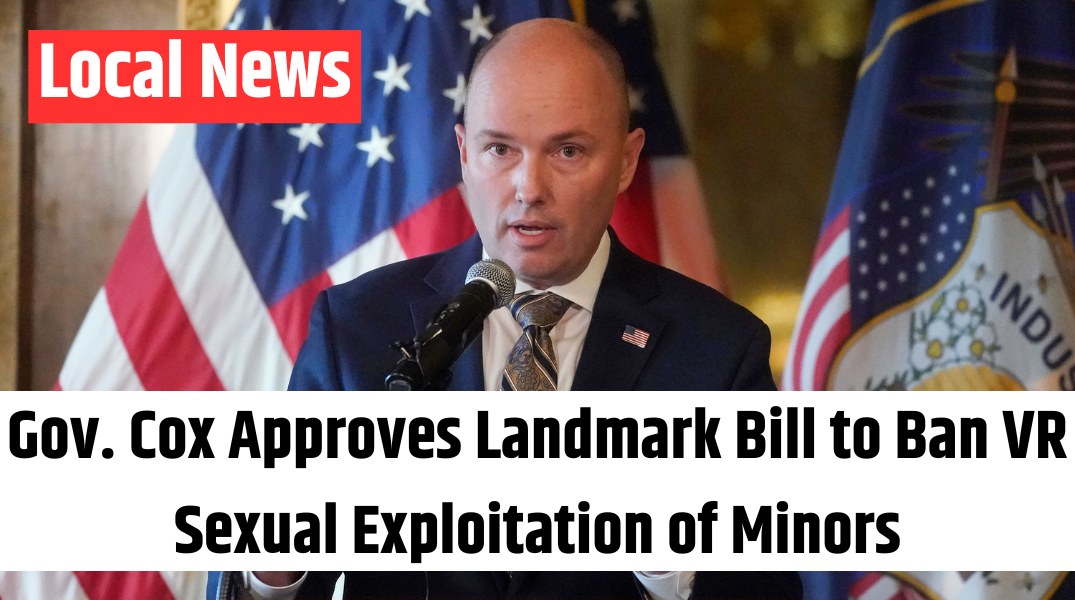
SALT LAKE CITY, Utah – A groundbreaking new law in Utah will make it illegal for adults to engage in sexual activity with minors in virtual reality (VR) environments. The legislation, signed by Governor Spencer Cox on Tuesday, is believed to be the first of its kind in the United States.
H.B. 358, known as the “Criminal Sexual Conduct Amendments,” specifically targets individuals who knowingly engage in inappropriate sexual interactions with minors through VR platforms. The bill, sponsored by Rep. Verona Mauga, was developed with input from Salt Lake County District Attorney Sim Gill, who emphasized the importance of closing legal loopholes in the rapidly evolving digital landscape.
Closing a Legal Gap in Cyberspace
According to Gill, previous laws addressed the distribution of explicit material to minors, but no statute covered engaging in sexually explicit acts in VR spaces. The new law aims to protect minors from predatory behavior in digital environments, ensuring that virtual spaces do not become exploitation zones.
Under H.B. 358, engaging in unlawful sexual activity with a child (14 or younger) through VR will be classified as a third-degree felony, while similar interactions with minors aged 14 to 18 will be considered a class A misdemeanor. Additionally, if the adult involved is less than 10 years older than the child, the charge would also be reduced to a class A misdemeanor.
Real Case Sparked Legislative Action
The bill was introduced following a disturbing real-life case in Utah. A concerned parent discovered her 11-year-old child had fallen asleep while wearing a VR headset, only to find the child engaged in a graphic sexual conversation with an adult. Authorities executed a search warrant but soon realized that existing laws did not cover this type of offense. This prompted lawmakers to take swift action in drafting new legislation.
Gill highlighted that the bill aligns with existing laws regarding enticement of minors through social media and the sharing of explicit content with children. He emphasized that predators actively seek out minors in digital spaces, creating VR avatars to engage in inappropriate behavior.
Additional Protections in the Law
The law also extends protections beyond minors. It criminalizes soliciting sexually explicit acts from individuals in custody, such as prisoners, detainees, or those under correctional supervision. Violations of this provision will be classified as a class A misdemeanor.
New Protections Take Effect in 2025
The new law is set to take effect on May 7, 2025. Gill stressed the importance of adapting legal frameworks to keep pace with technology, ensuring that VR and digital platforms are not exploited by bad actors.
“Technology is always advancing, and so are the ways in which it can be misused,” Gill stated. “This law helps ensure that those who try to exploit children in virtual spaces will face criminal consequences.”




